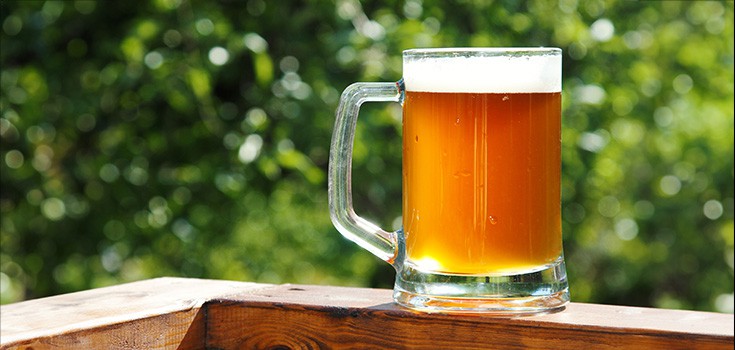TTB to Review Alcohol Labeling: GMOs in Your Beer and Wine?

Wondering if your favorite beer contains GMOs? How about anti-freeze, or MSG? These are just a few of the additives in beer, wine, and other alcoholic products, which currently are not required to be labeled. This could all change soon, though, due to state pressure regarding GMO labeling laws that were recently brought to light.
The Tax and Trade Bureau (TTB) was given jurisdiction over alcohol labeling just after prohibition. Congress passed the Alcohol Administration Act of 1935, which gave the Department of the Treasury power. Alcohol was seen as a big tax revenue generator, much the same marijuana is being realized as a source of income for states today.
In the 1930s, there was no consideration for the biotech monopolies that would eventually infiltrate the food supply, including alcoholic beverages. Many beer and wines now contain GMO soy, high fructose corn syrup (a GMO product), GMO rice, and other genetically modified organisms.
- GMO corn
- GMO corn syrup
- GMO rice
- GMO dextrose
- Monosodium Glutamate (MSG)
- Propylene glycol (a chemical found in anti-freeze)
- Caramel coloring (made from carcinogenic ammonias)
- Calcium Disodium EDTA (made from formaldehyde, sodium cayanide, and Ethylenediamine)
- Fish bladders
- Stabilizers linked to intestinal issues
- Food colorings made from petroleum and linked to hyper activity and learning disabilities
- BPA (a toxic substance which is made from plastic and causing epidemic obesity
The TTB says:
“. . .given the inquiries we have received and interest at the state level we are reviewing our policy on GMO-related statements on labels under our jurisdiction.”
Currently, the Texas Alcohol and Trade Commission (TTB) labels on alcohol scarcely provide any information to consumers at all. They label only the proof (percent of alcohol), carbohydrates, and protein as well as calories. There is no mention of the carcinogenic additives and GMOs lurking in your favorite drink. Whether you enjoy a Corona, Miller Light, Fosters, or Guinness, it likely has ingredients in it you may never consider drinking.
If the TTB allows states to decide whether manufacturers have to label their products, we can look forward to more transparency and place another nail in the biotech coffin.

Propylene Glycol sounds bad when you say it like that, but its also one of the main ingredients in azsthma inhalers, and its only used in non-toxic forms of antifreeze, not the type you’d put in your cars engine.
Really? Why is wine in the headline? None of the stuff listed is used in the making of wine nor are you allowed to add it.
Grapes are probably sprayed w/pesticides don’t a you think?
There is a list of approved additives (not really ingredients) it is radically much smaller and more limited than any food product. Isinglass that is derived from fish bladders (think like cod liver oil, but no flavor and has to be made from a solid chrystaline base so it solidifies easily and would not be in the final beer or wine.) which is used as a fining agent and only traces in the ppb or ppt would be left in the wine as it is used to remove unwanted hazes in the wine, is the only thing on they list used in wine. I haven’t used the stuff commercially at all, but did as an amateur and never cared for the results. If you want to avoid the GMO stuff in beer don’t drink major brands that use other than Barley or Wheat which have no GMO varieties. Unfortunately a lot of ultra large brewers use corn and rice in making beer, which isn’t very good tasting anyway.